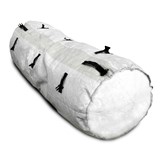Australian Industry Group (Ai Group) Chief Executive, Heather Ridout, said “Manufacturing is clearly feeling the impact of the downturn in confidence and activity with this month’s steep fall in the Australian PMI® following a similarly steep fall the previous month,” Ridout said.
“The decline in the November Australian PMI® comes on the back of an already weakening trend in activity. Of particular concern is the alarming fall in new orders. This does not auger well and suggests a poor end to 2008 and an equally weak start to the new year. Companies are doing a deep dive into their businesses in an effort to cut costs in order to ride out the downturn. Consistent with this, employment is under pressure. Clearly the Australian PMI® result reinforces the need for a significant cut in interest rates when the Bank meets tomorrow and means the Government’s stimulus package to be paid next week can’t come soon enough,” Ridout said.
PricewaterhouseCoopers Global Leader of Industrial Manufacturing, Graeme Billings, said “Manufacturing remains under severe pressure as business and consumer confidence continues to wilt. Although wages and input costs growth have begun to ease moderately, markets are weakening under the weight of slower world and Australian demand for manufactured products making falling profitability a clear risk over coming quarters. Overall cash flow is likely to remain tight.
“In these conditions, where most markets for products are softening, cost control and profit improvement measures is a key element of short-term business planning to preserve margins. Tight control of operational and administrative costs is vital, particularly when lower production volumes mean higher unit costs. Looking beyond the current downturn though, continued development of global supply chains and improvement of skills bases, as well as operational and product innovation are the key to manufacturing firms’ long-term competitiveness and growth,” Billings said.
Australian PMI® Key Findings for November:
- Manufacturing activity fell for a sixth consecutive month in November.
- The Australian PMI® recorded 32.7 in November, a fall of 7.7 points on the previous month.
- Recent results reflect an accelerating loss of consumer and business confidence, driven by worsening news on the global economy, falling household wealth, and the weak housing sector. This climate is being reflected in falling demand for manufactures.
- November’s fall in the Australian PMI® reflects decline across all components of the index. Production fell for the sixth consecutive month and more strongly than in recent months. This reflected the ongoing decline in new orders, which fell rapidly and for the seventh consecutive month.
- Employment fell for the ninth month in November.
- On the positive side, wages costs growth eased slightly and selling price growth input was stable. Input cost growth rose marginally.
- Inventories fell moderately, while supplier deliveries fell solidly. Exports fell sharply in line with the decline in global manufactures trade.
- Manufacturing activity fell in all states with NSW the best and Tasmania the worst performing states.








